Interview: Daniel Blue of Motopony
06.24.15
With their sophomore release Welcome You, local Seattle band Motopony are definitely back. Despite a four year lapse since their debut, along with label and member changes, the band’s uniquely curated sound in full force. To mark the album release, four of the six guys – Daniel Blue, Mike Notter, Andrew Butler, and Nate Daley – played a set in store at Easy Street Records this week. Friends, family and local supporters spilled onto the sidewalk to catch the acoustic set, while MP thrilled the crowd with old favorites like “King of Diamonds” and introduced fantastic new material. After the show, we took a moment to chat with Blue while he gamely jumped into a grocery cart to snap a few pics.
SMN: So the new album came out two days ago. How would you differentiate it from the debut?
DB: It’s a completely different concept. The debut I wrote on a three-string guitar in a room by myself and emailed to a hip hop producer named Buddy Ross. We found Buddy Ross doing the Red Bull Big Tune on Capitol Hill and I just asked him like “hey, here’s some dumb folk song called ‘King of Diamonds’, wanna try?” He didn’t respond for a while, but I knew I wanted him. He was the moto to my pony. I felt like it was this construction of organic and mechanical and it was going to be this marriage made in heaven, right? I think we were trying to do a Johnny Cash meets Bassnectar kind of idea or something just random. And this album is six hotheaded brilliant writers, you know even my drummer writes. We all write. We write words and we write sounds. And we promised each other we wouldn’t play anything that made us unhappy.
SMN: So this one was more of a collaborative effort, you guys bouncing stuff off of each other?
DB: Every one of these, we went into the studio together, we went into the practice space the month before we recorded at Bear Creek. It was absolutely a share and share alike collaboration. And you know, people brought ideas and we didn’t use what everyone… you know if there weren’t six thumbs up, it didn’t happen. This is the result.
SMN: That’s one good way to do it.
DB: I think so. I’ve heard it’s noble. It’s a really hard process, making your ego shut up and be a part of the group.
SMN: Learning to listen?
DB: It’s hard, it’s really hard. I don’t know if there’s any other art form where… I mean, do painters get together in sixes and like one lays down in the white gesso and they’re all working at the same time
SMN: Do you think that collaborative method is part of why your sound might be referred to as “experimental” or you ending up with so many different references and crossed genres?
DB: Sure, yeah people say it’s eclectic. Or they’re like “we don’t know how to classify you, what do you call it?” and it’s like well, that’s not my job. You know, I participated in a slice of pie, and there were five other slices of pie, and hopefully it’s a whole pie.
SMN: So if you had to describe your music to someone…
DB: See there it is, right. It’s coming…
SMN: In three words.
DB: Uh uh. Absolutely not my job. How many is that?
SMN: So to a listener if you were saying “hey I have this music out”?
DB: Self-evident. Sorry, I’m not trying to be snarky.
SMN: That’s okay, I can see where you’re coming from. Let’s try another question. Desert island, you have one book, one album, one movie, what are they?
DB: Am I speaking for the band or for myself?
SMN: You could give us two versions if you want.
DB: I don’t think I would be able to do that, we would argue about it for like fifteen years, we’d still be on the island arguing about which movie we were gonna watch.
SMN: Well we’re also missing the other five thumbs.
DB: Yeah. So how long do I have to stay on the island?
SMN: It’s just endless island time.
DB: And what, I’ve got a VCR or something?
SMN: We’re going to assume you have the electronics to support this question.
DB: Well this is a badass island. I’ve got electricity, and internet maybe? Is it Netflix I get to choose? Nah? Like one movie? Alright well I would choose something that’s from on the web cause that would mean I’m on the web too right? I guess I’m an opportunist.
SMN: Well it was open ended, you can give me whatever answer you want.
DB: “Spiderman Five.” Um, book? Probably East of Eden, I could read that one thousand times and still it would hurt every time I read it. And what was the other?
SMN: An album.
DB: Dark Side of the Moon I suppose. Well, uh, no. Bridge Over Troubled Water.
SMN: Nice. What do you think is your favorite song to play live and why?
DB: Man, we’ve learned to play in so many different forms and settings, with people leaving and coming and leaving and dying and having babies… So if we’re gonna just talk about my favorite setting and my favorite song… I think… There was a moment, we were in one of the oldest buildings in London. It was a church that had survived the fires, from like the Saxon times, and we played the last song on this current record. It’s called “Where It Goes” and the reverberation, and we had a sitar player with us, and the lights were low, it was past two am, and it was transcendent, to say the least.
SMN: Nice, London does have a ton of nice old churches.
DB: For sure. Man, they were thinking about something when they were building those.
SMN: Okay, since you seem to have plenty to say, what’s the one thing you wish people would ask you?
DB: Where does your power come from?
SMN: Where does your power come from?
DB: I don’t know. I have great ideas about it. I have a lot of really beautiful theories. It’s one of my favorite things to think about. It’s what I think about when I’m quiet. What is this? So beautiful, so good. I don’t know. It’s a mystery.
SMN: So you just want to keep thinking about it?
DB: The more I do, the more access I have to it. The more access I have to it, the more I can give it away. Yeah.
SMN: So is it all about giving it away?
DB: Yeah, you can’t bind that, you can’t keep it, it’s not for you. If you find yourself a hole in the wall, you know, in the dam… float, gush, right? How you gonna bottle it up? You? The missing brick?
SMN: On a lighter note – what was Casper the ghost like in real life?
DB: I think he was from Oklahoma, I’m gonna say three, four generations ago. He saw the Cherokee people arrive on the Trail of Tears and took it upon himself to go to the fresh water supply that they didn’t discover yet, and just bring buckets of water to the camp. I think he was just a delivery system of life. He was just so good at being alive he just stuck around.
And with that, we let Blue wander back to the friends and family that had come out to West Seattle to join Motopony in celebrating their return to home.
Tomorrow night, Motopony are bringing the full show to The Showbox, along with Tristen, Big Harp and The Owl Parliament. Tickets are still available here .
Interview by Stephanie Dore
Photos by Sunny Martini

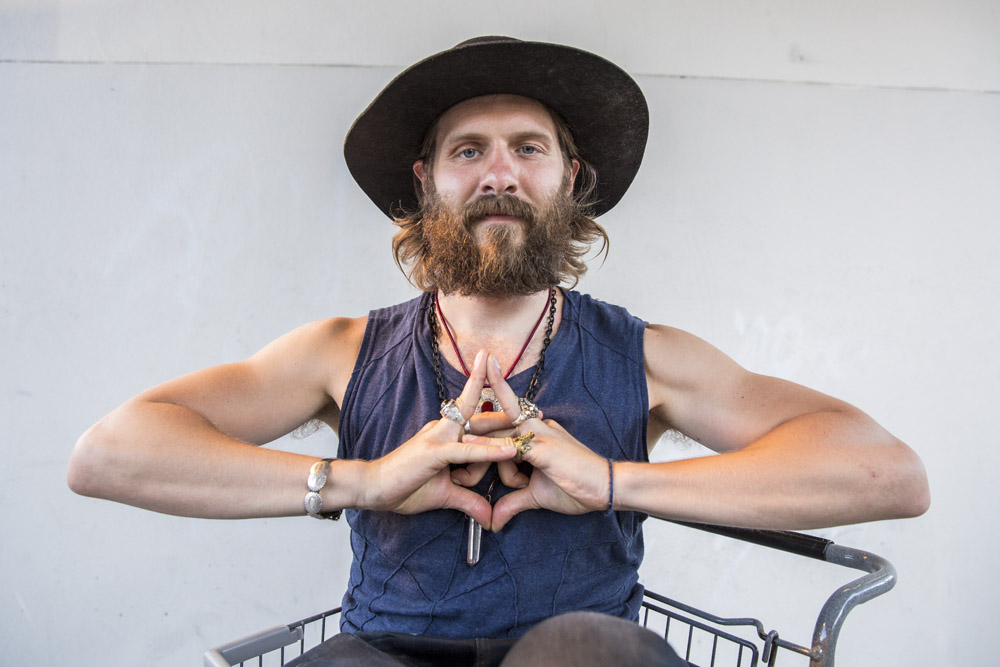


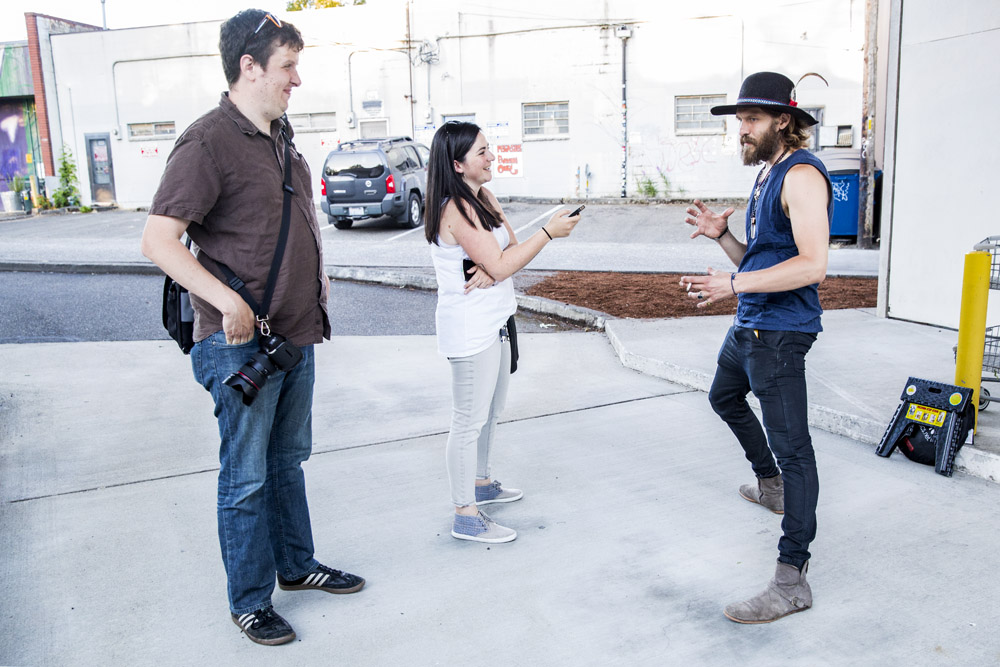 Motopony: Easy Street Records In Store Show
Motopony: Easy Street Records In Store Show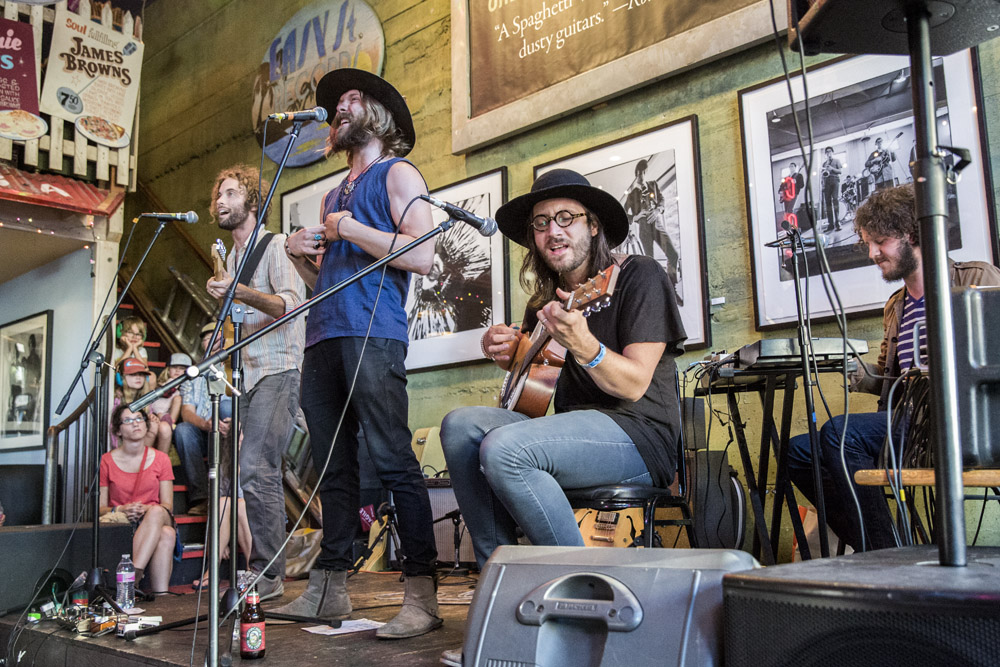
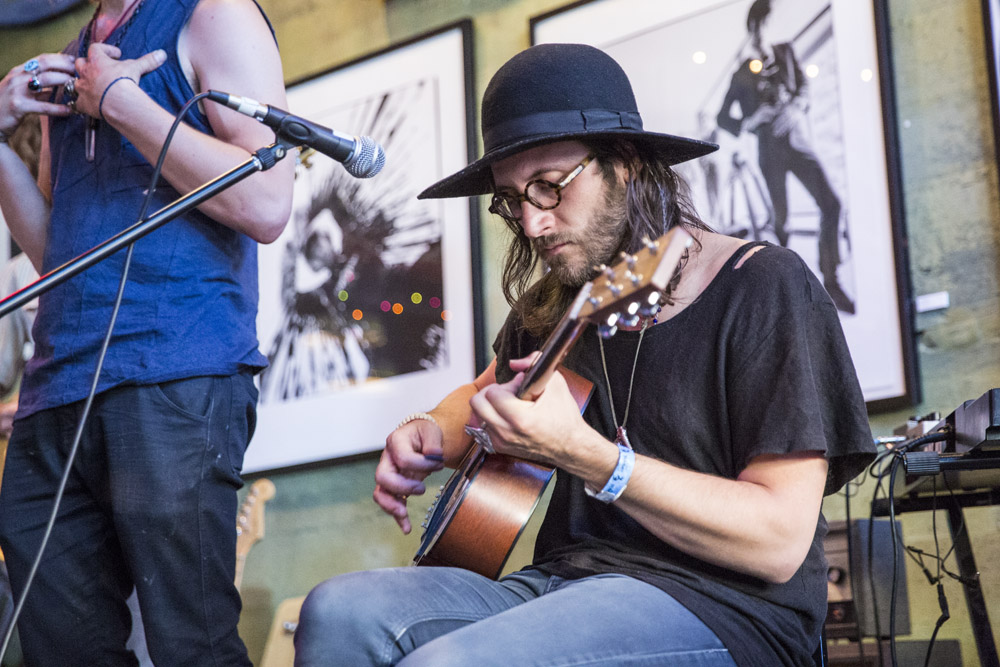
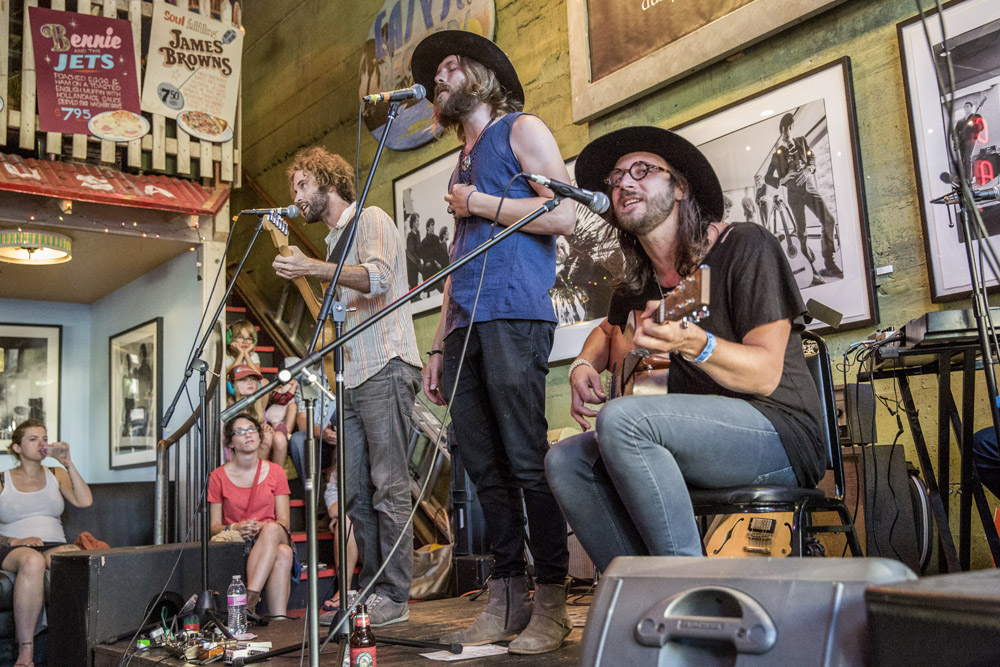
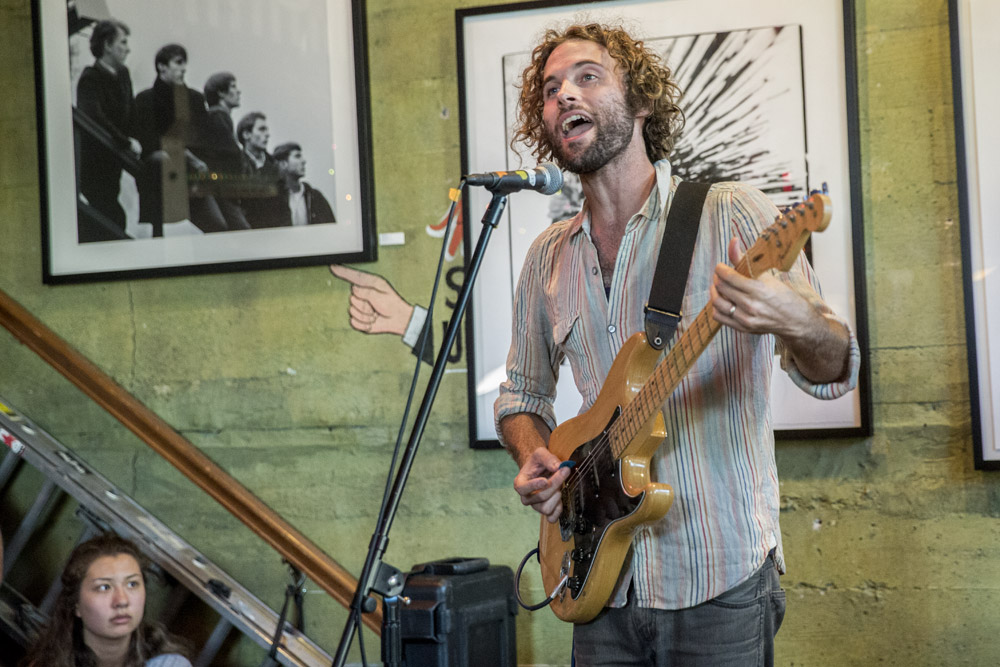
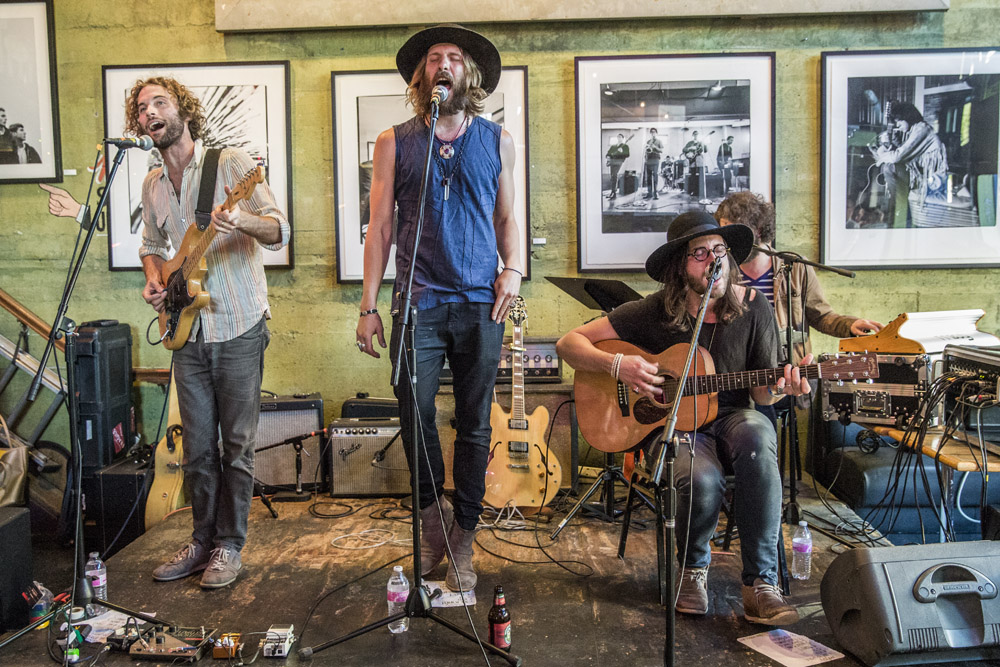
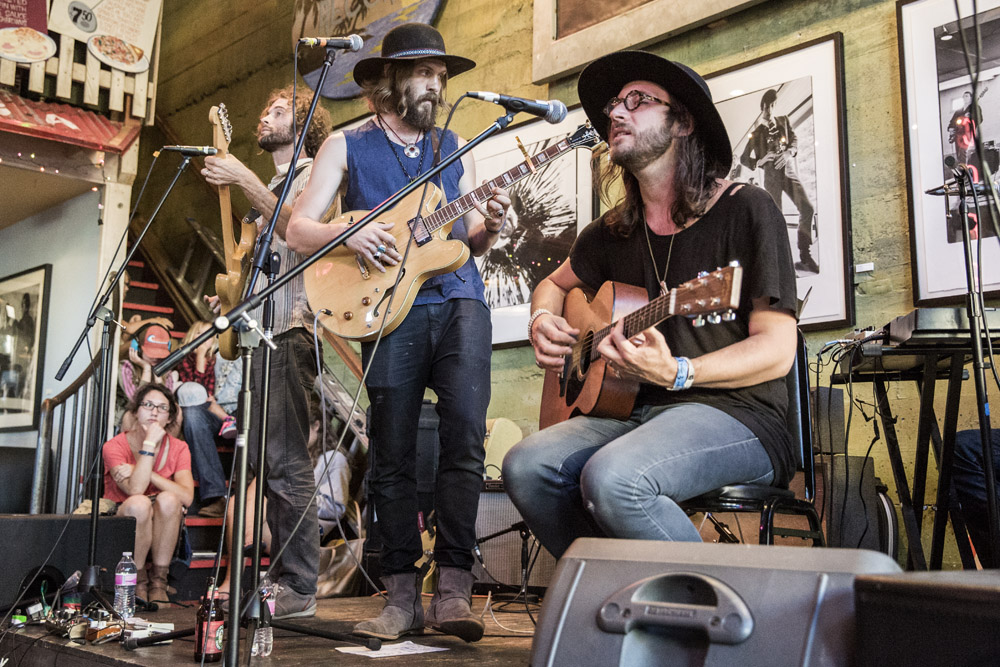
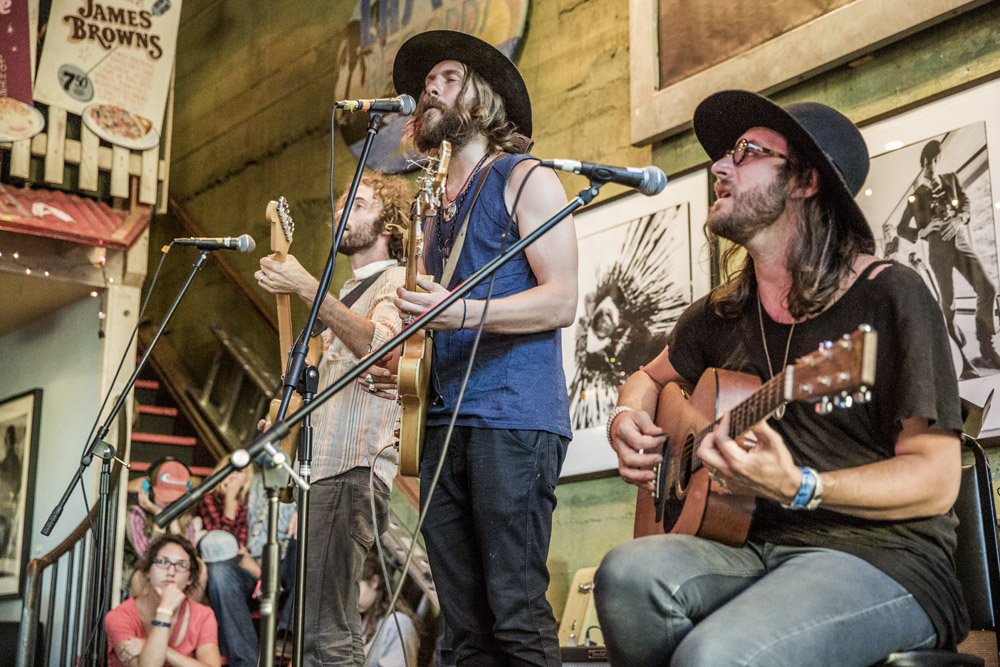
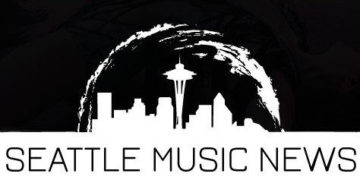


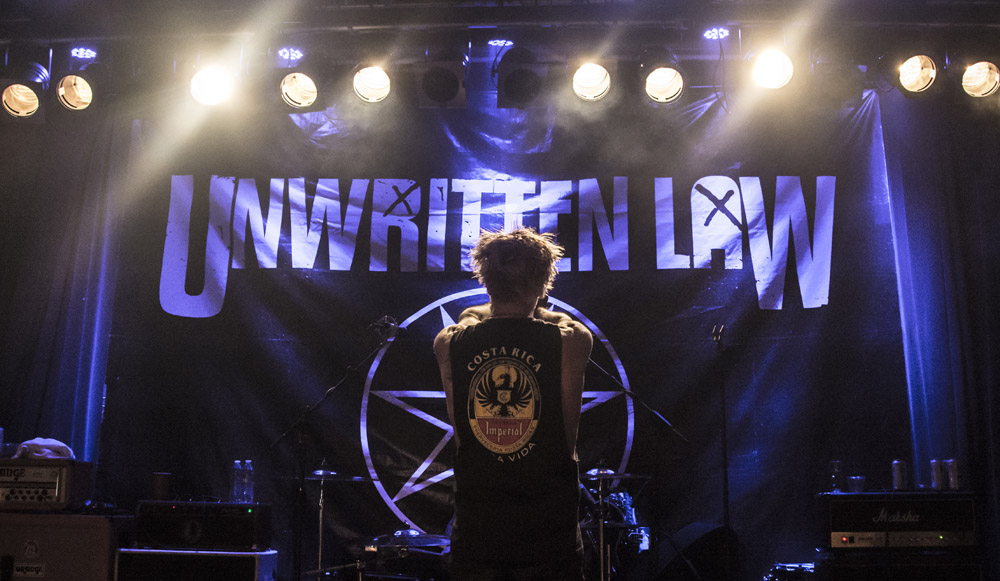

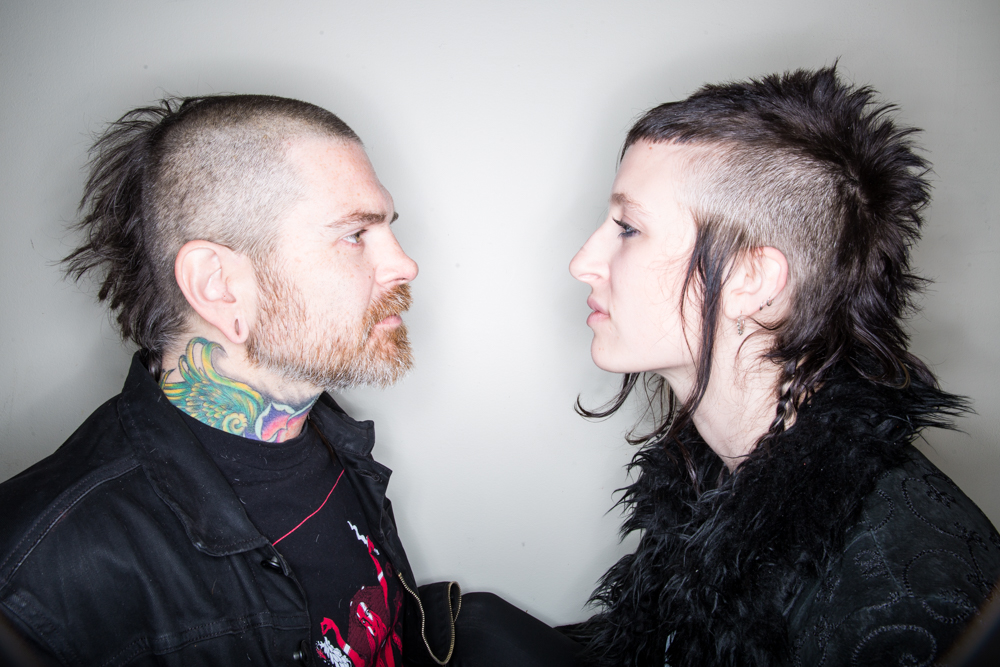
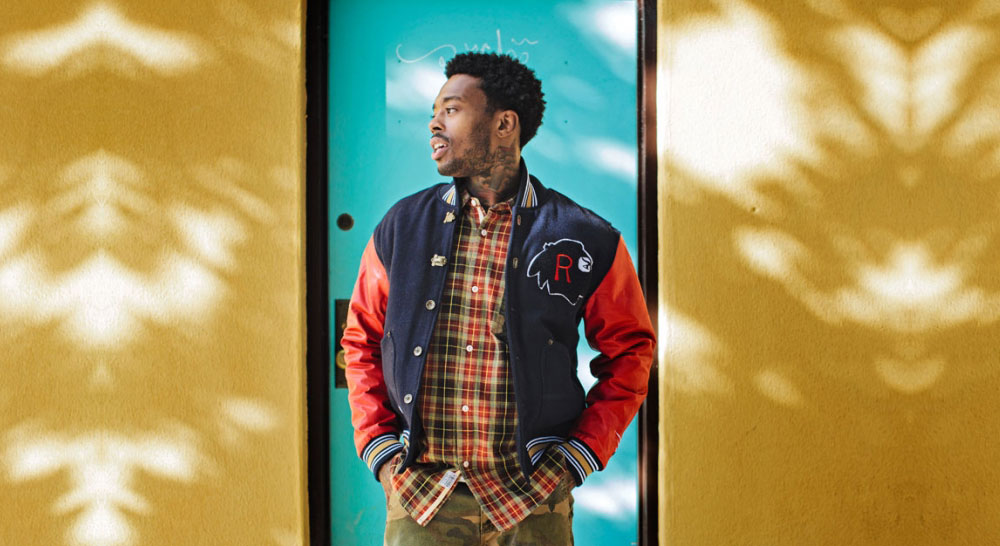
Trackbacks/Pingbacks